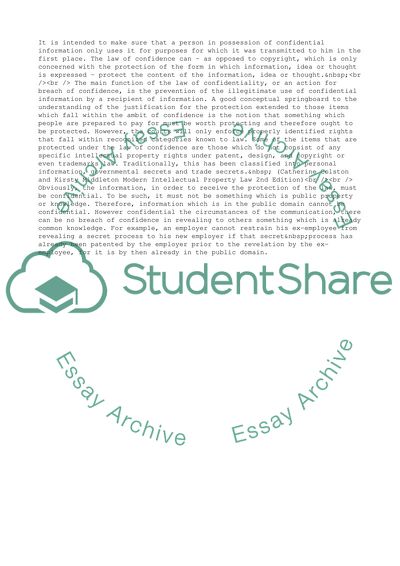Cite this document
(Action for Breach of Confidence Can Be Employed to Prevent Disclose of Case Study, n.d.)
Action for Breach of Confidence Can Be Employed to Prevent Disclose of Case Study. Retrieved from https://studentshare.org/management/1703307-to-what-extent-is-it-true-to-say-that-the-action-for-breach-of-confidence-can-be-employed-to-prevent-disclore-of-information-which-the-public-should-know
Action for Breach of Confidence Can Be Employed to Prevent Disclose of Case Study. Retrieved from https://studentshare.org/management/1703307-to-what-extent-is-it-true-to-say-that-the-action-for-breach-of-confidence-can-be-employed-to-prevent-disclore-of-information-which-the-public-should-know
(Action for Breach of Confidence Can Be Employed to Prevent Disclose of Case Study)
Action for Breach of Confidence Can Be Employed to Prevent Disclose of Case Study. https://studentshare.org/management/1703307-to-what-extent-is-it-true-to-say-that-the-action-for-breach-of-confidence-can-be-employed-to-prevent-disclore-of-information-which-the-public-should-know.
Action for Breach of Confidence Can Be Employed to Prevent Disclose of Case Study. https://studentshare.org/management/1703307-to-what-extent-is-it-true-to-say-that-the-action-for-breach-of-confidence-can-be-employed-to-prevent-disclore-of-information-which-the-public-should-know.
“Action for Breach of Confidence Can Be Employed to Prevent Disclose of Case Study”. https://studentshare.org/management/1703307-to-what-extent-is-it-true-to-say-that-the-action-for-breach-of-confidence-can-be-employed-to-prevent-disclore-of-information-which-the-public-should-know.


